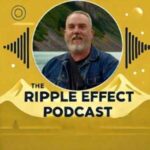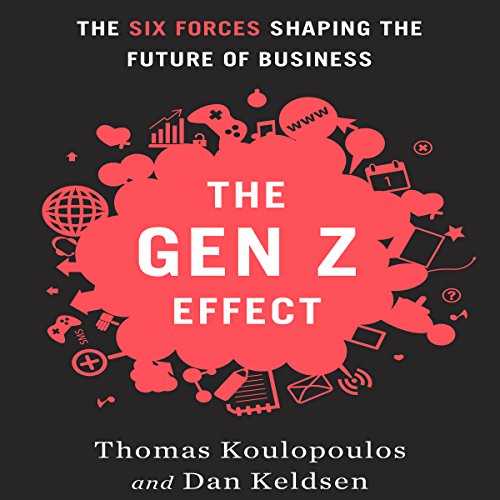I have tried to get my head around “The Great Resignation” as it was called after the pandemic, to understand the real reason so many people are choosing to become full-time entrepreneurs or to start a side hustle that they hope will grow into a full-time hustle someday. Reasons such as burnout, desire to work remotely, poor treatment by employers, and insufficient compensation are often cited as the reason for the big quit. However, I felt that these reasons alone were insufficient to justify the sea change in employment. As I attempted to understand the driving forces, I recalled a post I did back in March 2015 about personal fulfillment and thought there just could be a link between personal fulfillment and the great resignation.
After some reflection, I have concluded that the ability that the pandemic brought to reexamine the personal fulfillment derived from one’s job is the primary driving force behind the great resignation and explains why more and more employees are choosing to leave steady paying jobs to start their own small business or engage in a side hustle to feed their journey of personal fulfillment.
Before the 2020-2021 pandemic, as a society, we were used to and molded into a routine to obey and to do what had to be done without much reflection on what really made us happy. From a young age, we were taught to go to school, get good grades so we could get into college, and choose a good-paying career path, so we could earn a decent wage and save for retirement. People got a job solely to make money to support their lifestyle. Unfortunately, this often led many to choose an occupation that did not provide much in the way of personal fulfillment. When you do not get any type of personal fulfillment from your job, going to the office becomes a chore and soul-crushing over time.
The pandemic gave many people a pause. It provided a time for personal reflection that they lacked when they went to their 9 to 5 jobs every day. Many employees began to realize that there must be more to life than working a meaningless job for 40 plus years to reach retirement.
Incentives to pursue their personal fulfillment goals included several rounds of direct stimulus payments, American Rescue Plan benefits, and direct monthly child tax credits. All these benefits and payments acted as seed capital for many to reconsider the old 9 to 5 paradigm of a job.
Factor in a lack of daycare options that forced many former dual-income households to pick one parent to adopt a more flexible work schedule and act as a daycare provider. Many of the stay-at-home parents turned to side-hustles or started a home-based business to make ends meet while also feeding their ikigai personal fulfillment goals. They traded a job to peruse their life’s work which is the essence of ikigai.
Tim Tamashiro said it best in his TEDxYYC talk when he explained that a job is what you do to earn money. It is a paid position of regular employment so you can pay for housing, food, and so on. When you have a job, your role is to put in the effort so you can get paid. For most people with a job, it was not very personally fulfilling. That is what the vast majority of people were conditioned to do with their lives before the pandemic.
Work, on the other hand, is what you do to achieve some kind of result. Work is an activity involving mental and/or physical effort to achieve a purpose or result. The result could be the introduction of a new product that you felt could change the world or a purpose to create a more meaningful you. Working to achieve a result is far more personally fulfilling than just putting in the effort at a job. Work is what has always driven the entrepreneur to trade security for the pursuit of a purpose.
Therefore, in my humble opinion, the great resignation is not about burnout, poor treatment by employers, or not earning enough. It is about people trading in a job so they can focus on finding fulfilling work. When your work is personally fulfilling, it will not feel like work. You will wake up energized each morning and look forward to the day ahead and ultimately devote more of your energy to your work and live a happier life. Finding your work is where ikigai comes in.
The image I used in that original post was based on the Japanese philosophy of “Ikigai” and was used in the context of choosing the right occupation that will make you the happiest. Ikigai is a term that derives from two Japanese words: iki meaning “life; alive” and kai meaning “result; worth; benefit”. Simply put, it is about finding a meaningful life or one’s personal fulfillment.
The most common way of depicting ikigai is with a Venn diagram. Your ikigai personal fulfillment is at the intersection of four overlapping circles.
- What you love to do
- What you are really good at
- What the world needs
- What you can get paid for
Your personal fulfillment or ikigai requires a deep awareness of these four questions. The Institute of You provided a good list of questions as the first step in helping you find your ikigai.
How to answer the question: What you love to do
- What is most important to you in life?
- What are your values and how do you use them every day?
- Who are the people you love spending time with?
- What is your goal in life?
- What makes you smile?
- Where do you find beauty?
- What bodily sensations do you feel when you are happy?
- What makes you calm?
- What would you like to learn that you don’t know yet?
How to answer the question: What you are really good at
- What activities do you do in your personal time?
- What is easy for you?
- What are your achievements?
- What do you enjoy doing the most in life?
- What are your strengths?
How to answer the question: What the world needs
- How do you help others?
- What could people do more or differently?
- What is the world lacking?
- What will you leave behind?
- How could you be more involved in your community?
How to answer the question: What you can be paid for
- How much money do you need per month to cover your needs?
- What would you do with more money?
- What type of employment would you want: part-time or full-time? Temporary or permanent? Employee, freelance, or business owner?
- What work environment would you be happier in: working from home, having your own office, or an open space?
- What are the jobs that require the skills you already have? (see “what you are good at”)
- What is important to you in the company you work for?
- How does your company or the people who pay you match your values?
- What does success mean to you?
Ikigai is personal, specific for each one of us, and represents where our passion, mission, vocation, and professional lives meet.
- Your passion is what you’re good at and what you love
- Your mission is what you love and what the world needs
- Your vocation is what the world needs and what you can be paid for
- Your profession is what you can be paid for and what you’re good at
Successful entrepreneurs conduct an extensive introspective search of their soul to discover what they love to do and match it to their talents, what the world needs, and what can earn them money. Finding your ikigai or what it takes to achieve personal fulfillment is not only at the heart of the great resignation but is the fire that is forging the next generation of small businesses.
How can you use the knowledge of ikigai to discover your personal fulfillment so you can launch your own business?












